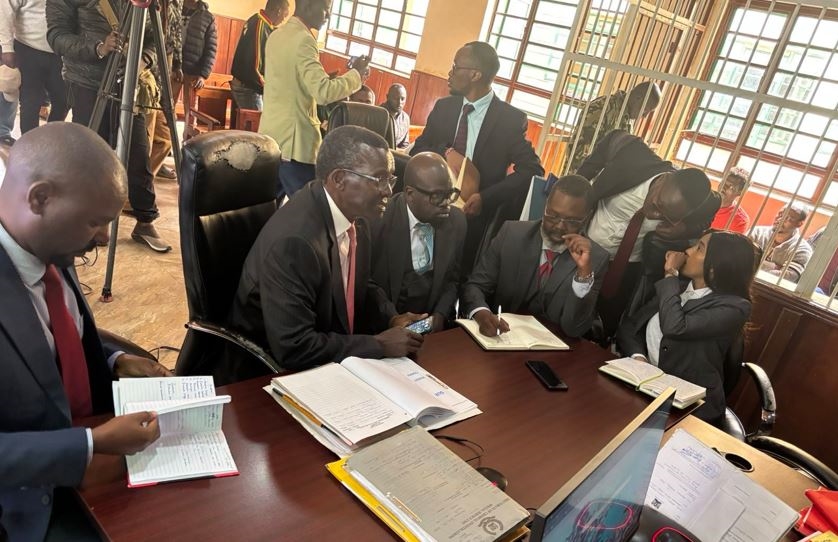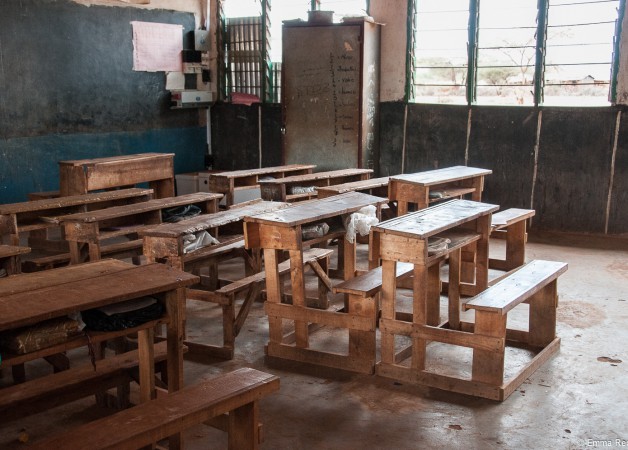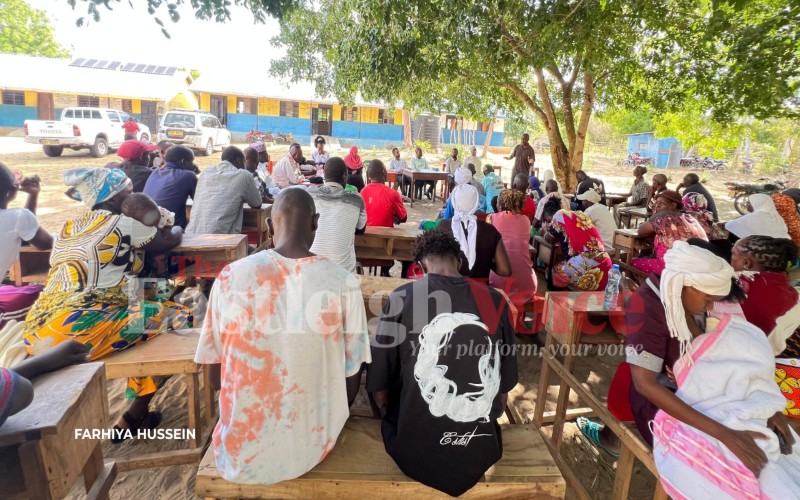Ex-CJ Maraga demands drop of terrorism charges against protesters as prosecution seeks 21-day probe

Maraga argued that anti-terror laws are being misused to criminalise constitutionally protected rights, including the freedom to assemble and petition.
Former Chief Justice David Maraga has criticised the government’s handling of anti-government protests, as the prosecution seeks 21 more days to probe young demonstrators facing terrorism charges.
Speaking during Thursday’s session at the Kahawa Law Courts, he argued that anti-terror laws are being misused to criminalise constitutionally protected rights, including the freedom to assemble and petition.
More To Read
- Former CJ Maraga condemns by-election violence, faults State for laxity
- Maraga says presidential bid driven by desire to put Kenya back on constitutional rails
- Former CJ Maraga rejects tribal politics in 2027 bid, sets coalition conditions
- Maraga stakes campaign on integrity, rejects handouts in presidential quest
- Lawyer Chacha Mwita detained for 14 days over terrorism financing probe
- Durban court trial of Jacob Zuma’s daughter sparks claims of political persecution
The prosecution intends to bring terrorism-related charges against the suspects, including three Burundians who remain in custody after failing to find sureties for their release. Defense lawyers, led by Maraga, contend that the government is weaponising anti-terror laws to target young people exercising their democratic rights.
The suspects, arrested during nationwide demonstrations on June 25 and July 7, appeared before Principal Magistrate Richard Koech, who scheduled the next hearing for October 2. They come from various parts of the country and are among a growing number of youth charged with terrorism offences following anti-government protests.
The prosecution told the court that investigations are complex, citing alleged links between some suspects and organised terror networks, and requested more time to finalise evidence collection.
Seven of the suspects were arrested in Machakos County on June 25 and are accused of committing a terrorist act, including causing damage at Matuu Police Station, assaulting police officers by pelting them with stones, and causing actual bodily harm. They also allegedly damaged three vehicles and broke 39 windows at the station, with the estimated replacement cost of the motor vehicles’ windscreens amounting to Sh85,000.
The accused were initially arraigned at Kithimani Law Courts on July 2 and released on Sh200,000 bail each after denying charges of malicious property damage. They were re-arrested on July 22 during the hearing and transferred to Nairobi to face terrorism-related charges.
The cases have now drawn criticism from human rights groups, lawyers, and activists, who claim that charging demonstrators with terrorism offences is an attempt to intimidate young protesters and stifle dissent. Families of the accused attended Thursday’s session, expressing concern over what they described as the criminalisation of legitimate political expression.
“Today, once more, I was compelled to appear at the Kahawa Law Courts because the future of Kenya is on trial. I attended court with other advocates for the youth to defend our Constitution. We stand with these young people because they are not terrorists. They are the conscience of our nation. The lives of these 70 youth have been turned into hell as they cannot do anything meaningful with terrorism charges on their necks,” Maraga said.
“Those who have not been able to meet the bond terms are languishing in cells since the Saba Saba commemoration. This is unacceptable. Ruto’s regime must stop abusing the Courts and the anti-terrorism laws. I demand that the ODPP drop these sham terrorism charges against peaceful protesters. Our consolation is that it is a matter of time before we reclaim our country and reset it to constitutionalism.”
The remarks come amid concerns over extrajudicial killings, with a TIFA survey showing that nearly three-quarters of Kenyans (73 per cent) believe the government is not doing enough to investigate and prevent such incidents, compared with 19 per cent who think it is.
The survey, conducted between August 23 and September 3, 2025, interviewed 2,023 adults across all 47 counties, capturing views on household economic realities, government policy, political alignment and expectations ahead of the 2027 general election.
TIFA noted a clear divide between those who support and oppose the Broad-Based Government (BBG) on security issues, with 37 per cent of supporters giving credit to the government compared with only 12 per cent of opponents.
Top Stories Today












































